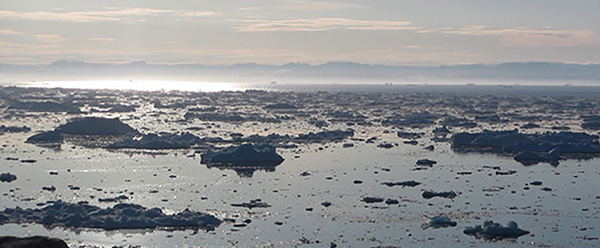
A major funding award from Arts Council England will enable the River Tamar Project to develop into the Atlantic Project from November 2016 onwards, with a large-scale public art project taking place across the city of Plymouth over the summer of 2018. Developed as a partnership between Plymouth University and the city’s new History Centre (the £34 million re-development of Plymouth City Museum and Art Gallery), the Atlantic Project will act as a pilot for a new international festival of contemporary art for the South West of England, in the lead-up to Mayflower 400 in 2020.
The Atlantic Project forms a major part of Horizon, the two-year visual arts development programme for Plymouth which was awarded £635,000 from Arts Council England’s ‘Ambition for Excellence’ fund earlier this month. Supported by Plymouth University, Horizon has been developed in collaboration with Plymouth Culture, along with a consortium of visual arts organisations and artist-led projects, including Karst, Peninsula Arts, Plymouth Arts Centre, Plymouth City Museum and Art Gallery, Plymouth College of Art and Visual Arts Plymouth.
Taking place in public contexts and outdoor locations across the city, the Atlantic Project will aim to raise the critical profile of visual arts in Plymouth and the South West. As well as commissioning site-specific works in the public realm by artists of international renown and supporting experimental emerging practice beyond the gallery, the project will place a strong emphasis upon talent development, fostering artist-led activities, and community engagement. Coinciding with existing popular events over the summer of 2018, the intention is to both actively involve local residents and to attract a wide range of visitors to Plymouth including holidaymakers to Cornwall and Devon, as well as cultural tourists and audiences for contemporary art. Thus the project will aim to deliver a highly engaging experience for a diverse range of audiences that is relevant and distinctive to the locality, whilst further identifying Plymouth as an international cultural destination.
Still from Subatlantic, Ursula Biemann (2015)
The River Tamar Project (established in 2012) will be incorporated into the Atlantic Project, with a distinct programme of activity, continuing to commission and produce artists’ projects in relation to the Tamar and the communities who live and work along it. In the build-up to Mayflower 400, the focus will be on a long-term community engagement programme, from 2017 – 2020, entitled The Mouth of the River, which will intertwine with the Atlantic Project but deliver an autonomous series of sustained participation projects at a local level. Taking the long tradition of the river as a metaphor for ‘time passing’, The Mouth of the River will focus on performance and time-based art practices in the context of today’s information-saturated, global network society. Artists and youth organisations based along the Tamar, which forms the border between Devon and Cornwall, will be paired with international practitioners and peer organisations situated along the Charles and Hudson rivers in the USA, developing long-term collaborations and exchange projects in the lead-up to Mayflower 400.
Tom Trevor, Artistic Director of the Atlantic Project, said:
“This is an exciting time for visual arts in Plymouth, and the South West. The 400th anniversary of the sailing of the Mayflower in 2020 is an exceptional opportunity to make a step change in arts and culture in the region. As part of this process, we are delighted to be launching the Atlantic Project in 2018, which will act as a pilot for a new international festival of contemporary art for the South West.”
“The Atlantic Project builds upon the work of the River Tamar Project, which will continue as a distinct programme of activity, with artists’ projects commissioned specifically in relation to the communities who live and work along the river. At the same time, we will be developing partnerships with peer organisations across the Atlantic, and elsewhere. Thus the Atlantic Project will aim to be both international and local in its focus, bringing critically-acclaimed artists from around the world to the South West and, simultaneously, supporting locally-based artists and the development of the arts ecology in Plymouth and the region.”
“We are grateful to Arts Council England and Plymouth Culture for their support, along with our core partners, Plymouth University and the History Centre, and look forward to working with our collaborators in the Horizon programme, as well as artists and communities, in the build-up to 2020.”
Headline Image: Still from Liquidity Inc., Hito Steyerl (2014)
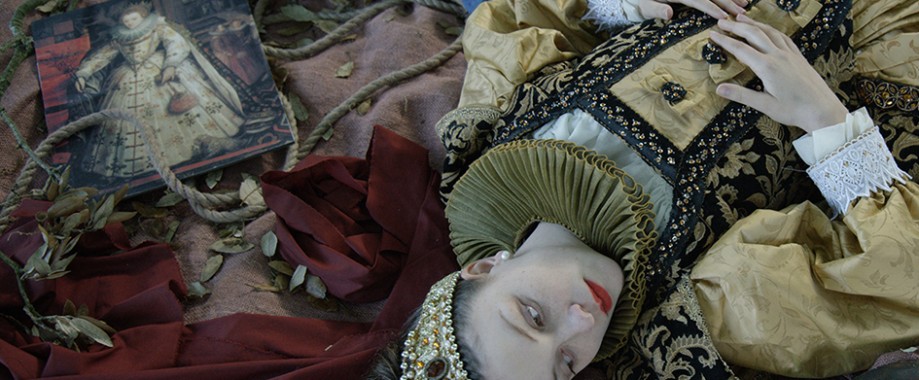
We are pleased to announce that Tropikos, John Akomfrah’s stunning RTP film commission, has been acquired by the Arts Council Collection to mark its 70th anniversary.
Described by Mark Brown, in The Guardian (15 January 2016), as “an experimental 16th-century costume drama filmed on the banks of the river Tamar … exploring the relationship
between waterways in south-west England and the slave trade”, Tropikos transforms the landscape along the Tamar Valley into the setting for a sixteenth-century port of exploration on the African continent in order to reveal the deep-rooted and darker history of the river.
Informed by historical accounts of the slave traders based in Plymouth, whilst also referencing classic literature, specifically Milton’s Paradise Lost (1667) and Shakespeare’s The Tempest (1611), the film is a fictional narrative, re-imagining some of the first “encounters with the other”, as Akomfrah puts it, in a period when Britain’s position as a global, seafaring power coincided with the enforced displacement of millions of African people across the Atlantic. Employing the tactics of Bertolt Brecht’s ‘theatre of alienation’, the artist presents a series of ‘tableaux vivantes’, which feel both archaic and imaginary, yet whose startling juxtapositions disrupt a simple identification with the characters depicted, demanding a conscious consideration of the constructed narrative. African and European locations blur, and characters and goods overlap with each other, as a representation of the faded traces of stories that we are asked to re-think afresh.
John Akomfrah (born 1957, Accra, Ghana) is an artist and filmmaker, based in London, whose works are characterised by their investigations into memory, post-colonialism, temporality and aesthetics, often exploring the experience of the African diaspora in Europe and the USA. Akomfrah was a founding member of the influential Black Audio Film Collective, in 1982, along with the artists David Lawson and Lina Gopaul (amongst others), with whom he still collaborates today, as Smoking Dogs Films.
On the 15th January 2016 the Arts Council Collection announced that Tropikos was one of eight new commissions acquired by the collection in order to celebrate it’s 70th anniversary. The commissions, also including works by Hurvin Anderson, Marvin Gaye Chetwynd, Ryan Gander, Mark Leckey, Heather Phillipson, Keith Piper and Katie Paterson, will all go on display in 2016 before joining the collection.
Tropikos (2014) – directed by John Akomfrah, and produced by Smoking Dogs Films (Lina Gopaul and David Lawson) – was commissioned by the River Tamar Project, and premiered at Devonport Guildhall in October 2014, as part of the It’s All About the River film festival. The commission was made possible with support from Plymouth University and Arts Council England, with kind contributions from the Elephant Trust and the George Melhuish Bequest and Smoking Dogs.
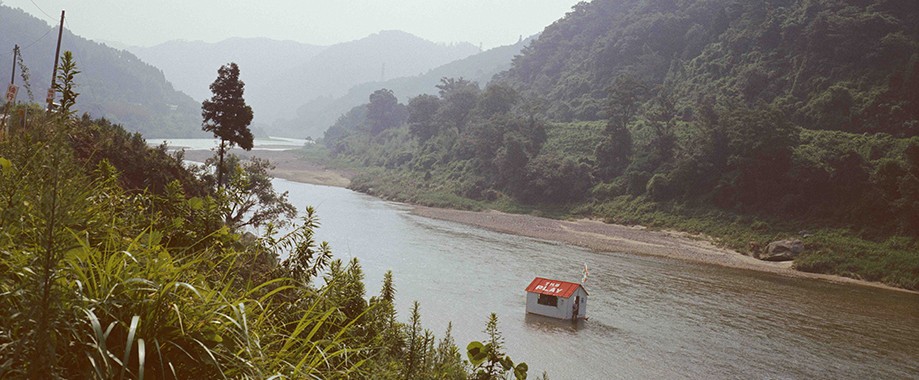
We are delighted to announce that curator and writer Tom Trevor has been appointed as the new Artistic Director of the River Tamar Project.
Tom has curated projects both internationally and within the South West. He is currently Guest Curator at the Whitechapel Gallery in London and was most recently Artistic Director of the 4th Dojima River Biennale in Osaka, Japan, taking place over the summer of 2015. Entitled Take Me To The River, this large-scale project included artists from eight different countries, with renowned figures such as Hito Steyerl, SUPERFLEX and Shimabuku showing alongside emerging artists, like Shitamichi Motoyuki, Aki Sasamoto and Yuken Teruya. One of the groups he worked with is The Play, an artists’ collective from the Kansai area of Japan formed in 1967, which Tom commissioned to reactivate a project from 1972, IE: The Play Have a House (pictured), floating down the Yodogawa river from Kyoto to Osaka.
On the news of his appointment, Tom said: “I am delighted to be taking on this role at an exciting time for the contemporary arts in Plymouth, and to be returning to the South West. My involvement with the River Tamar Project builds upon a long-standing interest in rivers and the cultural life that develops around them. I am really looking forward to engaging with the different communities based along the Tamar, and to commissioning artists’ projects in relation to this historic context and the people who live and work there. I am also keen to explore the possibilities for establishing an international network of river projects in the lead-up to the Mayflower 400 celebrations in 2020. There is enormous potential for projects in Plymouth and the Tamar area, and a great spirit of collaboration, so it will be exciting to work with partners in the city, as well as regionally, nationally and internationally, to develop a world-class project that is relevant and distinctive to the locality.”
Until October, Tom was also curatorial consultant to ARoS Museum, in Denmark, setting up a new triennial for Aarhus 2017, European Capital of Culture. Other recent projects he has worked on include a commission by, It’s All About the River artist, John Akomfrah at the 56th Venice Biennale in 2015, and the exhibition Black Sun, co-curated with Shezad Dawood, at the Devi Art Foundation, in Delhi, India, in 2014. Previously Tom was Director of Arnolfini in Bristol from 2005 -2013, Associate Curator of the Art Fund International collection at Bristol Museum from 2007-12, and Director of Spacex in Exeter from 1999-2005. He is originally from Devon, and has family roots in Cornwall.
The River Tamar Project has also welcomed back Producer, Phil Rushworth, who helped deliver last year’s It’s All About the River film festival. As an independent curator and visual art producer based in Plymouth, Phil has a special interest in working with rural communities, particularly in delivering contemporary arts to new audiences. Since 2009 she has worked on a number of projects across the South West, initiating Confluence (2013), a public art programme for Falmouth University and the University of Exeter, and 24-Hour Comic Etc. (2011), a series of 24 hour community events across Cornwall. She also produced the Falmouth Convention (2010), the Penzance Convention (2012) and the Cornwall Workshop (2013), working with the Cornubian Arts & Science Trust (CAST), based in Helston. She is originally from Cornwall.
The River Tamar Project team are now back in the office and will be working towards future events and artists’ commissions. Tom will be leading on a six-month period of research and development. One of the first tasks will be to update the River Tamar Project website. In the meantime, please stay connected with us through social media and look out for exciting future developments in the newsletter.

Last month, I was lucky enough to secure a ticket for the Plymouth Film Festival hosted at the Plymouth Arts Centre. Set up by Plymouth University graduates, Will Jenkins and Ben Hancock, the festival aimed to give an opportunity for filmmakers, both local and international to showcase their work. The festival comprised of over thirty short films, split into four categories. The audience was then able to vote on the best film in categories such as, Best of the South West, Documentary, Student and Fiction films.
The category that I found myself most enthralled by, was the Documentary Film nominees. The audience were presented with a wide variety of topics, ranging from the construction and engineering of the London Underground, to a story of a failed Iraqi asylum seeker living alone in an abandoned block of flats.
While all the films shown were all of a very high standard, the winner of the best documentary category was “Time on the Hill” by Ryan Dean. The film follows a deer stalker across the striking landscape of the Scottish Highlands. Whilst the main purpose of the film is to introduce the audience to the process of deer stalking, and its need as a form of environmental management and preservation, the film also tackles some of the preconceptions that deer stalking is a cruel bloodthirsty sport similar to fox hunting. Deer stalking, however, is not without its more graphic elements and the film, to its credit, does not shy away from this. I mention this only to give fair warning to people who do not wish to see the more gruesome side of where our meat comes from.
The film I found most enjoyable (and appears that I was not alone in doing so) was the winner of both the Best of the South West and Audience Choice was also a documentary. Called “Born to be Mild” by Andy Oxley, the film introduced us to the members of the Dull Men’s Club and uncovers their unique hobbies and interests. Oxley celebrates their seemingly boring pastimes that range from brick and milk bottle collecting to roundabout spotting and is the complete opposite of our modern day fast paced living. The end result is a humorous look into a group quite content with the simple things in life.
Personally, I would like to say a big thank you to all involved in the organization and running of the Plymouth Film Festival for putting on such a varied and professional program. I very much hope to see its return in the years to follow as one of the key cinematic events in the Plymouth calendar.
– Patrick Reilly-Smith
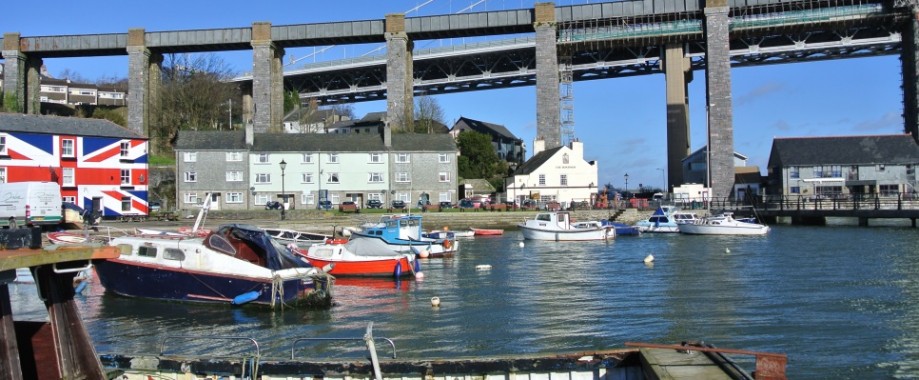
During my short time at the River Tamar Project, I have already gone from translating a 16th century royal commission of inquiry that documents the contents of a slave ship’s cargo hold, to delving into a Cornish mine in order to explore the heritage of the site and the affect the mining industry had on the local communities based around them.
I have a great interest in films and video-work and, as a second year fine art student at Plymouth University, I am keen to start using it more in my own practice. With this in mind, I jumped at the chance to intern with the River Tamar Project after hearing their Artistic Director, Paula Orrell, speak about their upcoming plans for the It’s All About the River film festival.
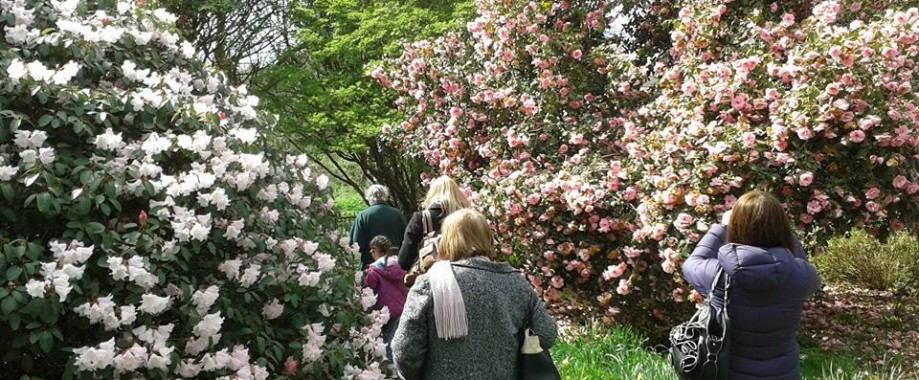
This week, Tamar Valley Tourism Association (TAVATA) held an excursion to Buckland Abbey to see the developments of the grounds there. Since TAVATA work with so many of our community partners in the Tamar Valley, I was pleased to join them as a new member. The weather was on our side as we explored the sunny gardens and then had a whistle-stop tour of the house, rounding off the afternoon with a cream tea. Being Scottish born, I had not realised the contentious issue which surrounds cream teas in the South West and was intrigued to see the split between cream versus jam first divided along the river border between Devon and Cornwall. Thankfully, not being able to eat cream myself, I managed to stay neutral!
Speaking to those who own B&Bs, restaurants and who are involved in the tourism trade which surrounds the River Tamar, it was clear that there is a real sense of community in the valley. There had been concerns over the reporting of the storm damaged rail line at Dawlish which implied that the South West was now inaccessible. TAVATA became advocates of the #openforbusiness campaign which aimed to promote Devon and Cornwall tourism in the face of the negative media coverage. The rail line has now, of course, reopened thanks to the efforts of the “Orange Army”.
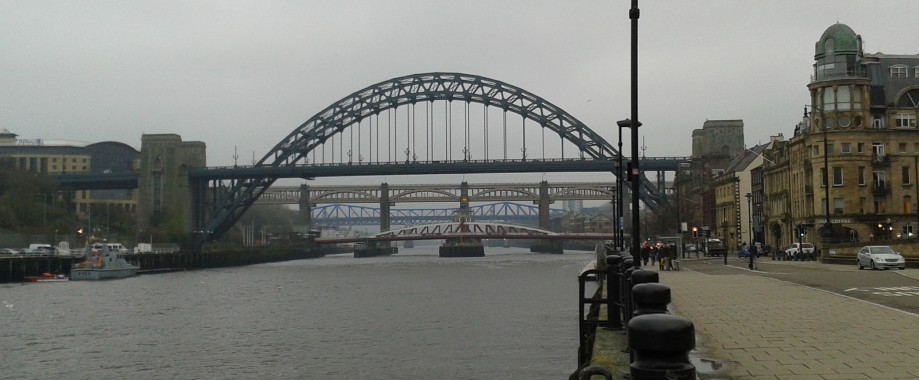
Our team were awarded a small bursary from Film Hub South West and West Midlands (SWWM) to carry out research for our upcoming film festival at the biennial AV Festival. Our Producer, Phil, and Marketing Coordinator, Vhari, made the journey to Newcastle for the closing weekend.
We had chosen to visit AV Festival 2014 partly due to this year’s festival theme, Extraction, inspired by the cities strong historical link with coal mining. This theme, along with the post-industrial River Tyne providing a dramatic backdrop to many of the events, clearly had a lot of relevance to our project and the heritage of the River Tamar which was, itself, once a bustling hub of industry. The festival also produced exhibitions, commissions, and film screenings across Newcastle, Gateshead, Sunderland and Middlesbrough, which made it an ideal event for our research purposes, as we too are planning to screen a variety of film in various venues along the Tamar for the It’s All About the River film festival. The main draw for this weekend, though, was the closing event, Test Dept at Dunston Staiths, which promised an evening boat trip to view an exciting and innovative work utilising the river’s industrial architecture.
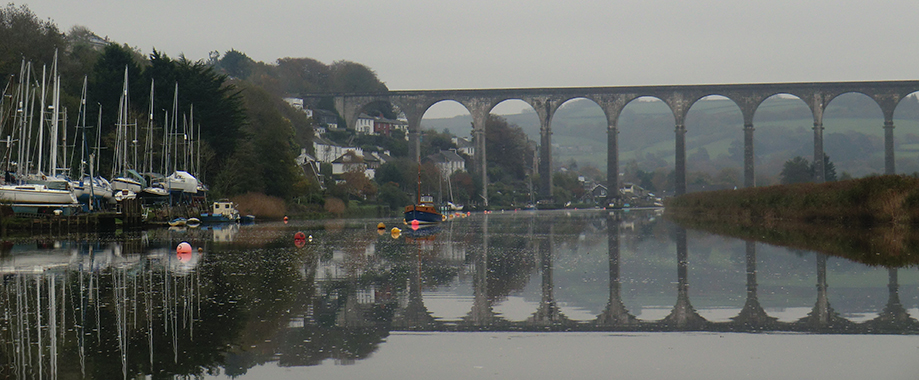
As a relatively new member of the River Tamar Project team, I’ve had the pleasure of getting to know the River Tamar and surrounding areas over the past few months. Although my first proper experience of the river was in the midst of December, travelling upstream by boat on a cold, wet and drizzly day, I was drawn to its beauty which almost belies its industrial past. Reflecting on those winter trips from the relative warmth of the team office in spring-time, I am looking forward to getting stuck into the exciting events we have planned for 2014.
This week has seen the touring exhibition for The Observatory design competition entries installed at the Tamar Valley Centre in Gunnislake. Movable, flexible and re-configurable, The Observatory will be an innovative, temporary space where artist and audience can engage with each other and the countryside outside of a conventional gallery space. The final structure is due to be sited on the banks of the River Tamar, so the touring exhibition was a great opportunity for local people to view the shortlisted entries and provide feedback on their favourite designs. I think we’ll all be keeping an eye out to see what the judges’ final decision will be when the winner is announced in April.
With the buzz around The Observatory competition coming to an end, the team are refocusing our efforts on our showcase for this year: the It’s All About the River film festival. Taking place in September – October, the festival will be celebrating the culture, heritage and future of the River Tamar. It’s been wonderful fun travelling to all of the locations the festival will visit and meeting with the people who are lucky enough to call the Tamar Valley their home; however it is now time to get down to the hard graft. Plans are strictly under wraps for the moment, but I can let slip that they involve a whole host of different films from new artists commissions, rarely seen archive film and some classic cinema, showing on large open air screens and in more intimate town halls and pubs. Look out for more details in the coming weeks!
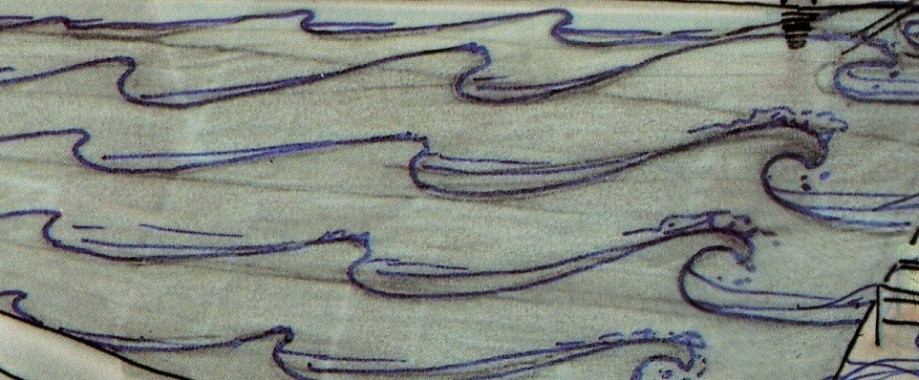
Artist, musicians, and writers have responded to the context of the River Tamar and have been part of its energy for centuries and, like all places, the resulting artworks become a record of its history. This history is important to the River Tamar Project as we can draw direct parallels to the intentions of our project and why art is important at moments of environmental and cultural shifts.
The results of this relationship between artist and riverscape are artworks that resonate with the area and its socio-economic and cultural history, as well as exploring universal issues. For instance, the celebrated British landscape JMW Turner who painted countless seascapes and river scenes was drawn to the Tamar Valley several times, notably around 1813-15. The significance of his work captured a period of industrial revolution, which led to a national reputation for Plymouth. Also, for our project now, his work presents the physical change of the coast and riverside, and identifies the infrastructure and design of this period.
